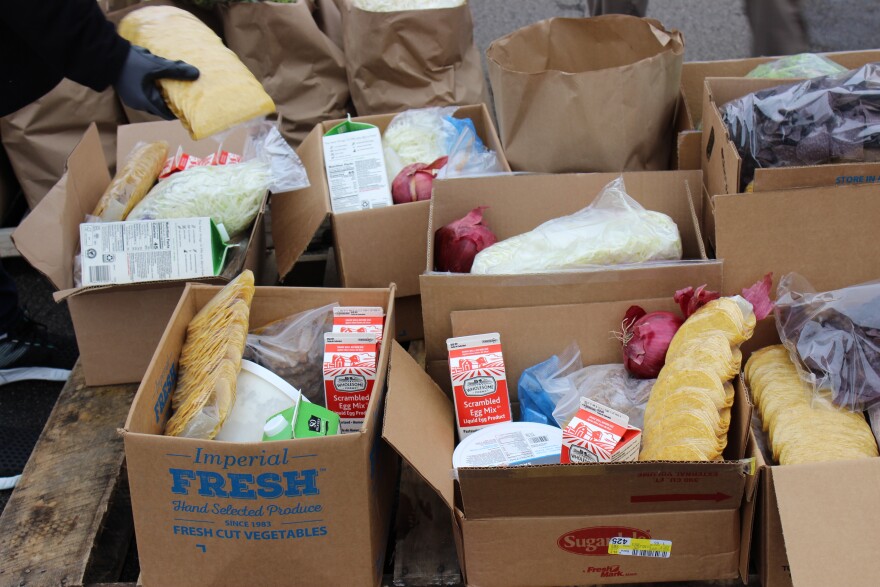Enrollment in public assistance programs in Pennsylvania continues to climb due to the economic fallout from the COVID-19 pandemic, though state human service officials say federal unemployment aid and other programs have kept even more people from falling into poverty.
Enrollment in the Medicaid program has increased by 10.6% and enrollment in the food stamp program is up 5.6% since the start of the pandemic, according to figures released by state officials Wednesday.
Since March of 2020, enrollment in both programs increased “fairly significantly,” said Pennsylvania’s Human Services Secretary Teresa Miller, speaking to reporters about the numbers.
These two programs are economic bellwethers and are the state’s largest safety nets, she said.
Enrollment in Medicaid is up by more than 300,000 people since February of last year, for a total enrollment of 3.1 million Pennsylvanians as of November, the most recent statistics available.
Enrollment in SNAP statewide is up more than 96,000 people during the same time frame, for a total enrollment of about 1.8 million people as of November. Enrollment is slightly down in the food stamp program, formally called SNAP, or the Supplemental Nutrition Assistance Program, from its peak in May of about 1.9 million people.
Miller urged anyone in need to seek assistance, particularly those who had been depending on unemployment programs. While Congress passed legislation at the end of December to renew both Pandemic Unemployment Assistance and Pandemic Emergency Unemployment Compensation, people collecting that assistance could face delays receiving it, Miller said.
“I want to reiterate our call to families that are struggling to afford food or access healthcare, that help is available,” she said.
She said the state is still awaiting federal guidance and she was unsure how long of a delay those in need of continued unemployment aid might face.
While the number of people seeking public assistance has increased, Miller said the picture would be much worse had Congress not passed the CARES Act last March and had they allowed unemployment programs to expire at the end of December.
“From the very beginning, a lot of us were anticipating we were going to see huge spikes in both SNAP and Medicaid enrollment and I think one of the reasons that we didn’t because the federal government acted so quickly initially, to make sure that we had stimulus payments go out to people, that we had unemployment compensation benefits that were going to an expanded group of people and additional benefits,” she said. “So I think some of those supports were so critical in helping to make sure more people weren’t falling into poverty.”
Pennsylvanians seeking aid can call 1-800-692-7462 or learn more at www.compass.state.pa.us.





